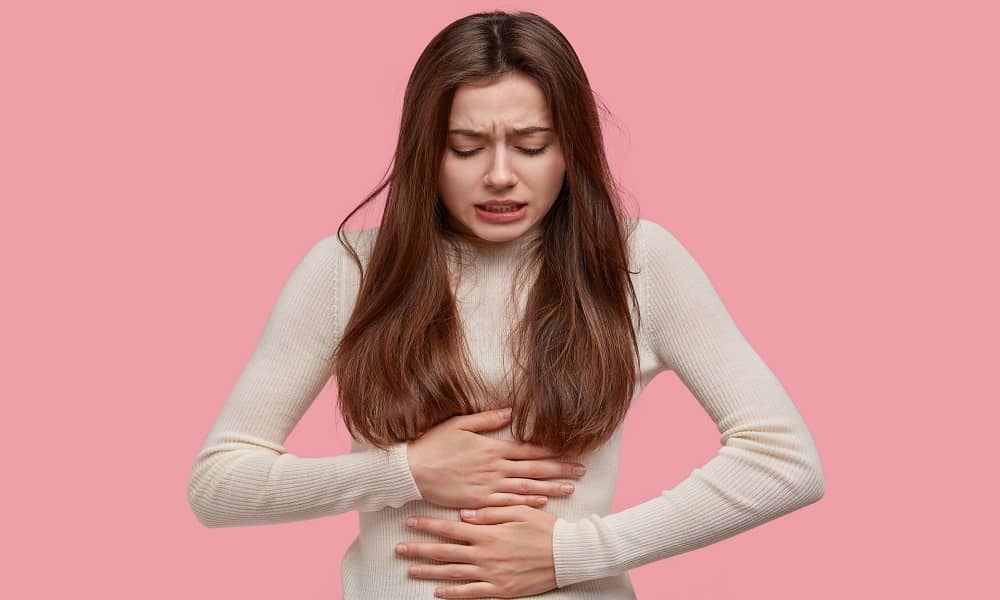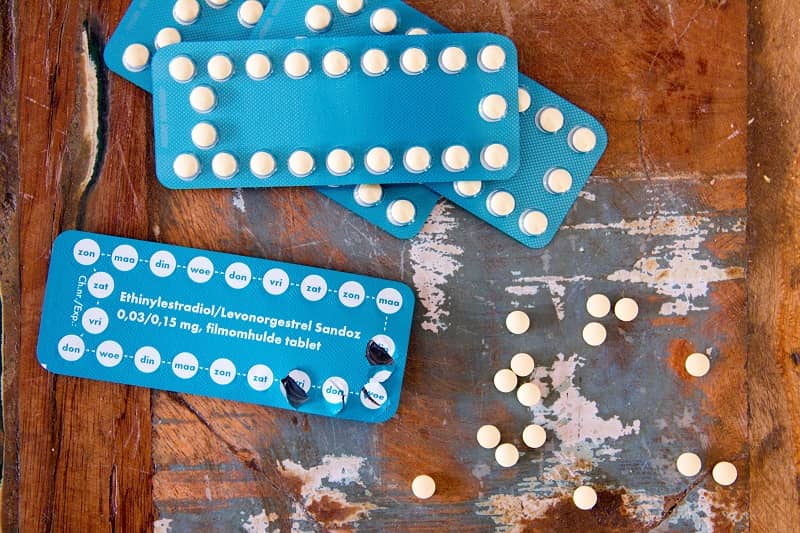


20 Oct Why is My Period So Heavy This Month and How Can I Stop It?
Causes of heavy periods can be anything from major lifestyle changes to medical conditions…
Given that every woman has a unique menstrual pattern, some can have lighter flow while others can have a mix of initial heavy and later light flow days.
However, there might be something more to it when the flow stays heavy for quite a long time.
Heavy menstrual bleeding, scientifically known as Menorrhagia, is a type of menstrual bleeding that lasts over 7 days with a heavy flow.
Approximately every one in 20 women is suffering from Menorrhagia currently.
Though it’s not an untreatable condition, when left untreated, it can lead to various complications.
Hence, it is always advisable to not ignore the first signs of heavy bleeding among women.
But since heavy bleeding can also be normal for many, women often fail to identify if they actually have an abnormal menstrual cycle.
To help you out with such complications, here’s a blog that takes you through the most crucial stages and causes of heavy periods.
What Causes Heavy Periods?


In most cases, menorrhagia causes are identifiable and treatable.
Most of these causes lie under three prominent areas:
- Uterine abnormalities,
- hormonal imbalance, and
- other medical conditions
The below-mentioned common causes of heavy menstrual bleeding can help you understand how these three factors come into play.
Reasons for Heavy Periods [9 Common Causes]
- Hormonal fluctuations
- Abnormalities in blood clot formation
- Uterine fibroids
- Endometriosis
- Pelvic inflammatory infection
- Endometrial Polyps
- Blood clotting disorder
- Obesity
- Drastic lifestyle changes
Right below we’ve explained these top 9 common causes of heavy periods.
#1. Hormonal Imbalance
The two major hormones that take part in the regulation of the menstrual cycle are estrogen and progesterone.
They help prepare the women’s body for a possible pregnancy by thickening the endometrium which lines the uterine.
On the off chance, the egg is not fertilized, the hormonal levels of these two hormones go down resulting in the shedding of the uterine lining causing menstruation.
Naturally, the abnormal changes in these hormonal levels can cause abnormal menstruation like heavy bleeding and cramps.
#2. Difficulties in Blood Clotting
Another prominent cause of heavy periods can be anomalies in clot formation.
If your body is not able to form clots, you might experience heavy bleeding.
Although seeing small occasional blood clots in your menstrual cycle is normal, if you start experiencing heavy periods with blood clots quite often, it’s time to ring up your doctor.
#3. Fibroids
Fibroids are the non-cancerous growths developing in and around your womb that can cause heavy and even painful periods.
While there are many types of fibroids, submucosal fibroids are commonly known to cause heavy menstrual bleeding with clots and pain.
Why do fibroids cause heavy bleeding?
- They exert pressure against the uterine wall that can cause heavy flow.
- It might interfere with the contraction of your uterine walls and lead to more bleeding.
- They might stimulate the growth of blood vessels that can cause spotting between periods or even heavy bleeding after a period.
- Fibroids can cause excess production of prostaglandins leading to heavy blood flow.
#4. Endometriosis
It is a medical condition where the tissue lining the womb is found outside the womb; for instance, it is found in the ovaries.
With endometriosis, the endometrial-like tissues mimic the activity of the endometrium, causing thickening and breakdowns leading to menstrual flow.
But since these tissues don’t find their way out of the body, they can cause severe pain and heavy flow.
#5. Pelvic Inflammatory Changes
This medical condition is characterized by infection of the upper genital tracts like the fallopian tubes and causes symptoms like abdominal pain.
The symptoms also include:
- Abnormal uterine bleeding
- Heavy and abnormal discharges
- Irregular menstrual bleeding like in-between periods
#6. Endometrial Polyps
They are the noncancerous growths that line the endometrial lining of the womb and even the cervix.
Some of the common symptoms of endometrial polyps include:
- Excessive bleeding during periods
- Bleeding in between periods
- Spotting during intercourse
The condition causes such symptoms because it might irritate the surrounding areas causing tissues to rub off, exposing the blood vessels.
#7. Blood Clotting Disorder (Von Willebrand Disease)
Von Willebrand disease is a common genetic disorder among women that can cause heavy bleeding in adolescent girls.
It mainly involves the deficiency of the von Willebrand factor, which is critical for clotting as it plays a role in platelet adhesion.
#8. Obesity
According to studies, obesity and heavy menstrual cycles are linked.
One study conducted by Maybin and colleagues on 121 women under reproductive age gave some insight into the relationship.
The study was conducted over participants who were not on any contraception pills and had no external hormonal exposure.
The analysis was based on these measures:
- Height and weight
- Pictorial blood loss assessment chart
Participants were further asked to assess their frequency of changing the pads or tampons.
In almost 63% of the participants, heavy bleeding was reported, and a link between menstrual PBAC score and BMI was found.
But, since there could be many more reasons behind the heavy bleeding, a mouse study was also conducted to examine the role of weight on endometrial repair during menstruation.
The study claimed a higher number of inflammatory factors in mice with heavy body weight concluding that obese women can be at risk of heavy menstruation.
However, we still need more studies to confirm this, there is some evidence showing the association between BMI and menstrual blood loss.
#9. Lifestyle
Lifestyle changes can be among the common causes of heavy periods and menstrual bleeding.
These changes could be stress, alcoholism, and excessive smoking. Even diet can influence your periods.
However, these changes usually cause normal heavy flow in your menstrual cycles and are usually not much of a concern when you eliminate the leading cause from your routine.
Since there are many health risks and medical conditions associated with heavy menstruation, it is always better to be attentive towards your flow of menstruation.
However, women might be genuinely confused about what a regular heavy flow and what an abnormally heavy flow is. Here’s what you must know about.
How Do I Know If I Have Heavy Periods?
It can be difficult to define heavy bleeding as it usually varies from woman to woman.
But since an average woman bleeds 80 ml of blood during a regular menstrual cycle, heavy bleeding can be defined as more than 80 ml of blood loss for more than 7 days.
However, measuring the amount of blood loss is not feasible at all, and, hence, you can look for the following signs.
Symptoms of Menorrhagia (Heavy Menstrual Bleeding)
Some of the common indications of heavy menstrual flow are:
- A higher frequency of changing pads or tampons. For example, changing sanitary pads after every two hours.
- Passing blood clots larger than 2.5 cm.
- Soaking through the bedsheet even after wearing a tampon.
- Using two sanitary napkins at once.
- Bleeding for longer than 7 days.
- Restricted activities due to excess flow.
- Symptoms like tiredness, fatigue, and excess cramps.
- Breathlessness.
Yet, finding out if you are suffering from menorrhagia is not that easy as each woman can take heavy bleeding differently.
Hence, if you notice any of the signs like bleeding for more than 7 days, you must consult a doctor for an early diagnosis.
Diagnosis of Menorrhagia (Heavy Periods)
Diagnosis of menorrhagia is based on a questionnaire by the doctor about your medical and menstrual history.
For women who have been bleeding for more than 7 days, common questions that your doc can ask will be about:
- Age of onset of the menstrual cycle
- Length of the menstrual cycle
- Number of days that your period usually lasts
- Number of days of heavy period
- Family history concerning heavy flow
- Stress and depression cases
- Weight
- Medications
Based on your answers, your doctor may suggest a set of tests:
- Blood test – A blood test is done to check for anemia or thyroid. CBC is also done to check for clotting time.
- Pap test – The test is conducted to check for any infections around the cervix.
- Endometrial Biopsy – It is done to find any abnormal cells around the endometrium like cancer or other such cells.
- Ultrasound – This test checks for the functioning of the blood vessels around the uterus.
Once menorrhagia is confirmed, you must start with your treatment right away as ignoring heavy bleeding could lead to many complications.
How to Stop Heavy Periods?
Here we give you solutions for two types of heavy periods:
- Abnormal heavy periods
- Heavy periods caused by fibroids involving large blood clots
How to Stop Very Heavy Menstrual Bleeding?



You can help yourself to get some relief from the heavy flow that comes during the menstrual cycle.
#1. Changing the Diet
Though no such studies are there stating diets alone can stop heavy periods, but eating habits do help in managing it.
These changes can also reduce the flow to some extent:
- Take an iron-rich diet – Since you lose a lot of blood during heavy periods, iron can reduce the risk of anemia while also helping in the formation of new blood cells.
- Vitamin C – The vitamin would only help you along with iron to prevent iron deficiency and anemia.
- Stay hydrated – Replenishing your body with water can help you fight fatigue and weakness.
- Avoid foods with processed sugar.
#2. Birth Controls
There are many birth controls available in the market that can help regulate menstrual flow.
They thin out the endometrial lining that reduces the amount of blood and tissues lost during the menstrual cycle.
This way these options can also help you reduce the length of your menstrual cycle.
#3. Over-the-Counter Medications
Some medicines available over the counter can help you relieve period pain and also regulate the blood flow.
However, make sure you consult your doctor before taking any such medications.
#4. Hormonal Treatments
Doctors might recommend hormonal treatments for women who are suffering from hormone-induced menorrhagia.
These treatments usually involve progesterone as they have a fast-acting effect.
The treatment is also useful in relieving heavy bleeding caused by endometriosis.
Now, although heavy bleeding is manageable with lifestyle changes and medicines, menorrhagia caused by fibroids needs specific treatments.
How to Stop Heavy Menstrual Bleeding with Clots Caused by Fibroids?
#1. Uterine Artery Embolization
Uterine artery embolization is useful for women who are suffering from heavy menstruation caused by fibroids.
It mainly focuses on shrinking the fibroids by blocking uterine arteries and cutting off the blood supply to the fibroids.
During this process, the surgeon uses a catheter through the large artery in the thigh and guides it to the uterine arteries where substances are injected to reduce the blood supply to fibroids.
#2. Focused Ultrasound Surgery
This too treats menstruation caused by fibroids by shrinking them.
It uses ultrasound waves to destroy fibroid tissues. No incisions are done for this procedure.
#3. Myomectomy
It involves the surgical removal of any fibroids. The performance of surgery depends on the size, position, and number of fibroids.
The Takeaway
A period for 2 weeks with blood clots is often not considered to be a warning by women as the definition for heavy bleeding is not the same for everyone.
But the fact is, heavy bleeding for even a week can be as dangerous as anything that you consider a threat to your life.
The menstrual cycle has always been an indicator of health.
From the color, length to the flow of the menstrual cycle, everything counts as a factor for your reproductive health.
Hopefully, now you know all about what heavy bleeding is and what complications it could lead to.
For any more queries, the following Q&A section should help you.
FAQs
Check out the following questions to clear more doubts regarding heavy menstrual cycles.
#1. Can stress cause heavy periods?
Yes, stress or any sort of lifestyle change can lead to heavier periods.
#2. Can low iron affect your period?
Iron deficiency has a two-way link with the menstrual cycle. While women with iron deficiency can have irregular menstruation and other such complications, women with heavy periods can have iron deficiency.
#3. Can exercise make your period heavier?
Women often ask, why is my period so heavy this month? Is it because of exercise? But the fact is, exercises don’t cause your periods to become heavy. Rather they just stimulate the rapid flow of blood from your uterus which is normal.
#4. Can heavy periods cause anemia?
Yes, a common complication of heavy periods is anemia. This is because of excess blood loss, more than 80 ml of blood loss in a day can lead to fewer blood cells and hence less iron. This further can cause anemia.
#5. Does alcohol make your period heavier?
Heavy booze doesn’t make your period flow heavier rather it causes dehydration, making your blood fluid difficult to pass through. This can lead to skipped periods or irregular periods.
#6. When should I be concerned about a heavy period?
If you have to change your tampons every two hours, and you spot some clots in your periods, it’s time to ring your doctor.
Heavy periods that don’t last for more than 7 days are usually normal, but if it exceeds seven days, it is worrying.
#7. What deficiency causes heavy periods?
Vitamin C deficiency and iron deficiency can cause heavy periods.
#8. What does big blood clots in period mean?
Passing blood clots in your period is normal, but if the clots are larger than regular ones with heavy flow and very painful cramps, it might be signs of fibroid formation.
Are there any questions we forgot to include? Drop any more of your queries related to the causes and complications of heavy periods down below and don’t forget to share this blog if you found it useful.



No Comments